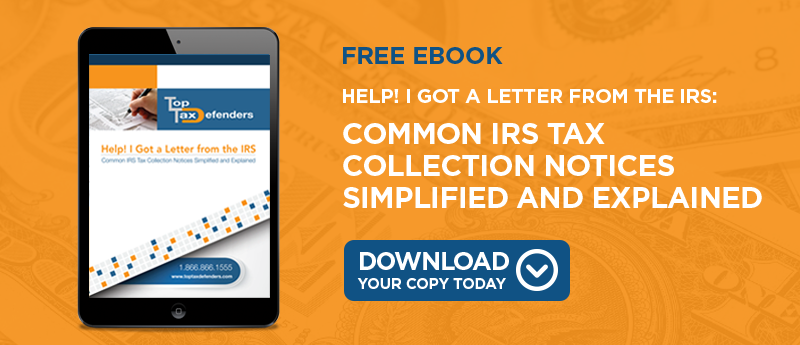
Dealing with financial difficulties especially tax issues can be overwhelming and frustrating. Rather than face the situation alone, you may want to hire someone like a tax resolution specialist to assist you. You can hire a competent IRS tax attorney by knowing what this type of lawyer does and how you can find the best one to represent you.
1. What a Tax Attorney Does
A tax attorney is a lawyer who is specially trained to handle personal and business income tax matters. He or she is capable of serving as both a legal adviser as well as a financial consultant.
This type of lawyer has completed a bachelor's degree in finance or accounting. He or she also will have completed a law degree and passed the state bar exam. The attorney also has a license to practice law in the state.
2. Tax Situations that Require a Tax Attorney
A tax attorney is trained and experienced to help in a variety of tax and financial situations. To start, he or she can represent you in a criminal tax matter. This attorney could be crucial to exonerating you and helping you avoid fines and jail time.
Further, this type of attorney can also give you advice on how to remove a tax lien against your personal or business assets. You might be able to avoid having your wages garnished and your bank accounts levied or frozen because of a tax-related issue.
Another way that tax attorneys help clients is by representing them in audits. When you are being audited by the IRS, you have the right to have legal counsel representing you. Your tax attorney can advocate for you in the audit and speak on your behalf.
They also assist with delicate financial tasks like planning out your estate or finalizing plans for your funeral. With a tax attorney's assistance, you can draft a will, set aside money for your final expenses, and designate whom you would like to be in charge of your estate after you are gone.
3. Choosing a Qualified Tax Attorney
So how can you find a competent and ready tax attorney to represent you? As you vet attorneys from your area, you should keep some important criteria in mind.
First, you might want to ask about the lawyer's background and experience. You may even want to learn about his or her record of success representing clients like you.
You also should ask whether or not the attorney continues to take training to keep his or her license updated. These questions ensure you get the most competent legal counsel available for your tax or financial matter.
4. Reason to Hire a Tax Attorney
You might wonder why you should hire a tax attorney to represent you. These professionals are trained and experienced in representing clients from all walks of life in complicated financial and tax matters. They especially are trained to take on matters like:
- Audits
- Criminal charges against clients
- Handling IRS communications
- CP notices indicating you owe the IRS money
- Planning estates and inheritances
Tax attorneys can also assist you in claiming credits and refunds to which you may be legally entitled. Some of the credits you might be able to claim include:
- Child care tax credit
- Earned income tax credit
- Small business expenses like travel and office supplies
- Charitable contributions
These credits reduce what you owe to the IRS. They also can result in you getting a sizable refund back from the federal government.
5. Traits of a Good Tax Attorney
As you vet tax attorneys to hire, you might wonder what traits to look for in this type of representation. First, you may look at the attorney's experience in handling tax or financial matters like yours. You want to know this person can win your case and spare you from financial difficulties like wage garnishments or bank levies.
You likewise want to discover whether or not the lawyer knows the tax codes as they apply to your situation. The tax codes are always changing and can be difficult to keep up with and understand. However, a tax lawyer will know what the codes are and know as well how they can be applied to your case.
A good attorney should also be experienced in the relevant proceedings, precedents, and IRS and government regulations. You may not want to hire someone straight out of law school but rather someone who has seen the inside of a courtroom if not an auditing room at the local IRS office.
You also want a tax attorney who has a good rapport with his or her clients and is readily available to you. You do not want to hire representation who is uptight, rude, and difficult with which to get along. You also do not want to retain a lawyer who is not available to you and hands off your phone calls or emails to assistants.
Finally, you may prefer a tax attorney who charges affordable rates and has good references. It would not be out of line to ask for these references and to check them before you hire the tax lawyer. The references may also be able to tell you how much the attorney charges for his or her services.
6. Expectations that Come with Hiring a Tax Attorney
As a client, you are entitled to have certain expectations of your attorney. You first expect this representative to be assertive and confident when representing you. You want an advocate who is not afraid to argue for best interests in court or before the IRS.
You also may want an attorney who can advise you of your payment options for settling your IRS debt. These options include an installment agreement or an Offer in Compromise. Your lawyer may also be able to help you contest the amount of money you owe or depending on the circumstances file new or amended returns.
A tax attorney can be a valuable resource to have by your side during complex financial and tax-related matters. These tips demonstrate the best ways to find and retain a tax lawyer. An experienced tax attorney could help you avoid penalties, garnishments, levies, and more.




